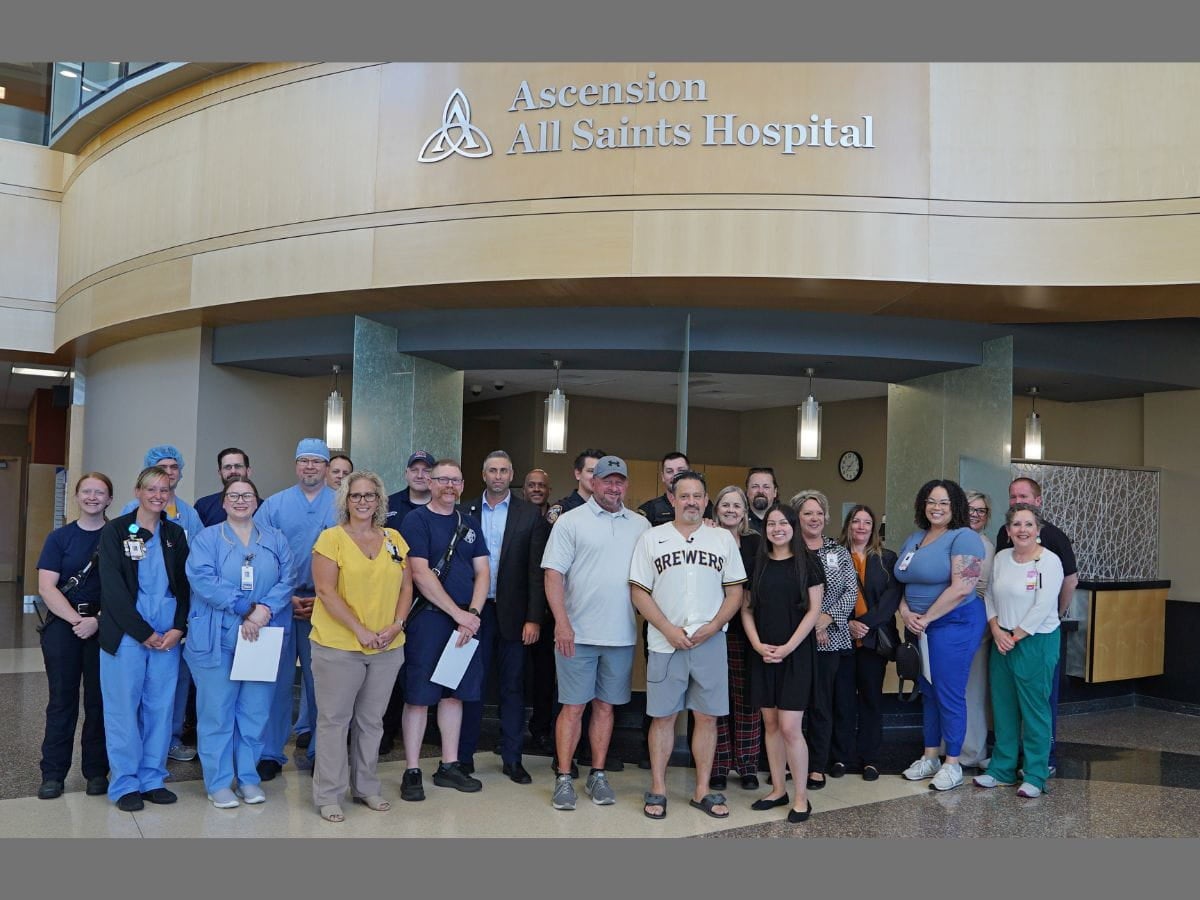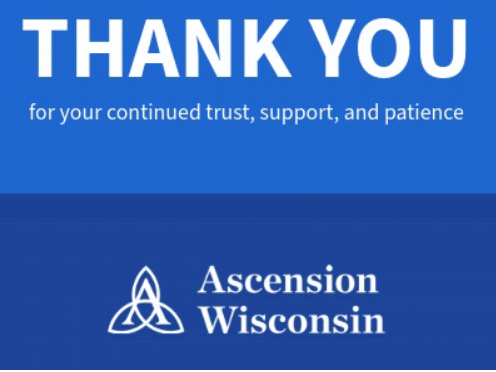A South Milwaukee man who nearly lost his life to a heart attack while golfing in Racine reunited with the team who helped save him—crediting a chain of quick decisions, teamwork, and expert care for his survival.
Peter Bontempo collapsed on a local golf course in May after experiencing a week of several undiagnosed “mini heart attacks,” a series of cardiac episodes that can go unnoticed or attributed to something else. His golfing companions called for help and performed CPR until members of the Caledonia Fire Department, the Caledonia Police Department and the Racine County Sheriff’s Office arrived to stabilize his condition and rushed him to Ascension All Saints Hospital. There, the Emergency Department and Cardiac Catheterization Lab teams took swift action to provide life-saving care.
“They were all godsends,” he said. “I was told I shouldn’t be alive. All these miracles happened in a row. Everything went perfectly for my situation, and that’s why I’m alive—because no one gave up on me.”
Peter and his care team gathered on June 26 at Ascension All Saints Hospital for a recognition ceremony honoring the first responders and hospital staff whose coordinated efforts saved his life.
Warning Signs
According to Dr. Michael Thomas Flisak, a cardiologist at Ascension All Saints Hospital, Peter’s major heart attack was preceded by multiple “mini heart attacks”—temporary blockages in the heart’s blood flow that often present with subtle symptoms.
“Mini heart attacks are serious,” said Dr. Flisak. “They can feel like mild chest discomfort, shortness of breath, or even fatigue. Many people ignore or brush off these symptoms, not realizing they could be warning signs of something much more serious.” Peter had experienced chest discomfort and an irregular heart beat in the week before his heart attack.
What Is a Mini Heart Attack?
A mini heart attack—also known as a non-ST elevation myocardial infarction (NSTEMI)—occurs when blood flow to the heart is temporarily reduced. While less severe than a major heart attack, these episodes can still damage heart tissue and signal a high risk of future cardiac events.
Common symptoms include:
- Chest tightness or pressure
- Fatigue
- Shortness of breath
- Nausea or vomiting
- Cold sweats
- Dizziness or lightheadedness
Risk factors include older age, high blood pressure, diabetes, smoking, high cholesterol, obesity, and chronic stress.
Prevention and Early Detection
Dr. Flisak emphasizes the importance of early detection and preventive care. “Don’t ignore the signals your body is sending. If you feel something’s off—get checked. It can save your life,” he said.
To reduce the risk of a heart attack, Dr. Flisak recommends:
- Eating a heart-healthy diet
- Exercising regularly
- Quitting smoking
- Managing stress
- Monitoring blood pressure, cholesterol, and blood sugar levels
A Remarkable Recovery
Peter cautions others who may experience symptoms and are unsure of what to do. “Don’t do what I did. If you experience any of these symptoms, call your doctor or get to the hospital,” he warned. Just weeks after his heart attack, he’s not only alive—he’s back at work, back on the golf course and recently ran two miles.
“I know how lucky I am. Seeing how many people made it possible for me to be here today is overwhelming. To say I have a grateful heart is understatement; it’s hard to put into words.”




